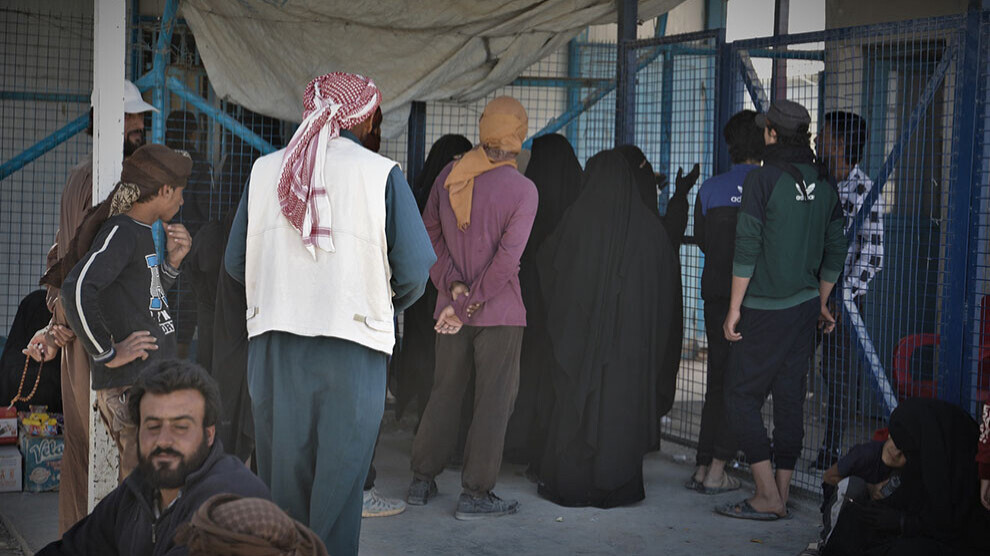50 Syrian families apply to leave Hol Camp
The approximately 25,000 Syrian citizens in Hol Camp near Hesekê can be released under a general evacuation. So far, only 50 families have applied to leave the internment camp.
The approximately 25,000 Syrian citizens in Hol Camp near Hesekê can be released under a general evacuation. So far, only 50 families have applied to leave the internment camp.

Following a meeting on October 5, the Autonomous Administration of North and East Syria, Syrian Democratic Council (MSD) and Social Justice Council decided for the evacuation of displaced Syrian families from the Hol Camp as of October 10. The decision concerns only the families who come from Syria.
Only fifty families have so far applied for their leave from the camp since the decision was made. However, more and more people are joining the long queue in front of the commission office in the camp southeast of Hesekê. Anyone who wants to benefit from the process must go to the autonomous authority in person. In addition to identification documents, the commission office requires precise information about the future whereabouts of those applying to leave. According to Cabir Mustafa, the person responsible for foreign affairs in Hol, the first families are to be evacuated next week.
In total, the Hol Camp is home to 6,706 Syrian families from cities like Aleppo, Homs, Deir ez-Zor, Raqqa, Bab and the Badia desert region, Mustafa said. That is 24,223 people, a large part of them are children and young people.
Resettlement programs running since 2019
Since last fall, the Northeast Syrian autonomous administration has been trying to create a perspective outside the Hol Camp for people who were not involved in IS crimes through resettlement programs. Within this framework, 4,789 people in 27 groups have been able to leave the camp so far. The large Arab families or tribes guarantee that they will be reintegrated into Syrian society and will not rejoin the IS. Also families without any relationship to the IS have already been released. The non-Syrian IS supporters, on the other hand, are to remain in the camp until a solution is found with the foreign governments for transfer.
Amnesty enormous relief for the autonomous administration
However, the amnesty for Syrian citizens -a demand of the local tribes- is also an enormous relief for the autonomous administration authorities. The guarding of the camp, the provision of food and medical care for the inhabitants is hardly manageable against the background of the lack of international support. The tent city had been erected by the UNHCR for Iraqi refugees in early 1991 during the Second Gulf War. After the camp was closed in the meantime, it was reopened in 2003 in the course of the Iraq war. For the past year and a half, it has been used mainly to house women and children who previously lived in areas under IS control. A major problem, however, is the massive overcrowding. The conditions are catastrophic due to the lack of aid from the international community, and medical care is miserable.
RELATED NEWS: